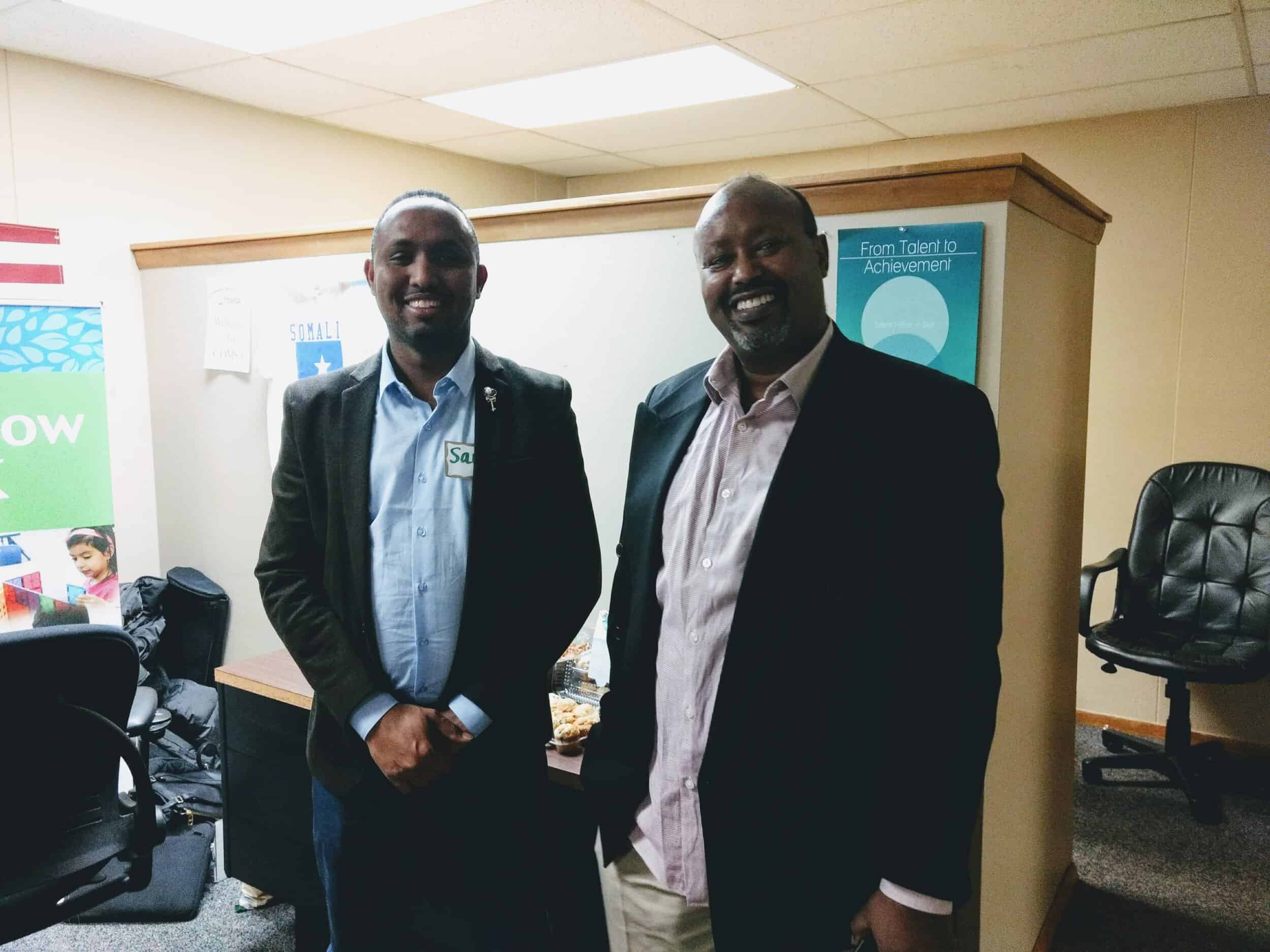Meet Said Hassan, Co-founder of Community Services Agency in Green Bay, Wisconsin
Said Hassan founded Community Services Agency (COMSA) in 2017 to meet the unique needs of refugees and immigrants arriving in Green Bay, Wisconsin, where he had settled himself a year earlier.
“Our goal is to build a resourceful community that contributes to the well-being of all residents, to recognize that newly resettled refugees face trauma and challenges related to adjusting to a new culture and environment,” Said says.
Green Bay has recently become one of the more popular resettlement destinations for Afghan, Ukrainian, Somali, and Congolese refugees. COMSA is providing critical support to these newcomers, particularly with the recent influx of refugees from Afghanistan.
When Said first arrived in Green Bay in 2016, he got involved in local efforts to support the refugee community and began volunteering at the Job Center of Wisconsin in his free time.
“I met many refugees and immigrants seeking culturally customized services. I had the privilege of using my own experiences to help others who were facing similar challenges,” says Said.
While volunteering there, Said was mainly supporting refugees with the job application process. However, he realized that the community had crucial needs beyond job searching. For example, one client not only needed support finding a job, she did not have enough money for the next month’s rent. These experiences illuminated the need for a local organization that could provide robust wraparound services for refugee communities. Thus, Said launched COMSA with fellow Somali refugee Mahamed Rage Mahamed.
At the age of 10 in 1991, Said and his family were forced to flee Somalia because of the ongoing civil war. He spent the next 12 years of his life in a refugee camp in northeast Kenya, “where access to education and basic necessities was scarce,” Said says.
In 2003, still living in Kenya’s Daadab refugee camp, he graduated from high school, an opportunity not necessarily accessible to all his peers living alongside him. He then moved to South Africa, where he worked as a shopkeeper before opening his own convenience store. However, anti-immigrant sentiment was rampant, and xenophobic attacks led to him losing his convenience store business.
Following these setbacks, Said went back to school and obtained degrees in communication studies and international development from the University of South Africa and the University of the Western Cape. Said’s career developed as he worked with the South African Department of Justice as an interpreter and with organizations affiliated with the United Nations that addressed pertinent public health issues. Said worked closely with refugees in South Africa, which deepened his understanding of providing humanitarian services to displaced peoples.
At this time, Said began the process of resettling his family in the United States. Navigating the complex and strenuous resettlement process with the United Nations High Commissioner for Refugees took seven years.
Ultimately, Said and his family resettled in North Carolina. After living there for a year, the family moved to Green Bay.
While COMSA started with only two full-time employees, it has since grown to a team of five full-time staff members and three part-time employees, providing a multitude of services for refugees coming from Afghanistan, Congo, Somalia, Ukraine, and several other countries. Since opening, the office hasn’t closed for a single day, keeping its doors open for any community member seeking support.
Services that COMSA provides include employment support, translation services, and an after-school tutoring program. When the COVID-19 pandemic hit, COMSA was prolific in its efforts to provide the vaccine to a large number of residents.
As Said and his team look ahead and navigate the changing environment for immigrants and refugees, one of COMSA’s primary goals is to bolster its mental health services. Said views it as a key community need.
“We recognize that newly resettled refugees face trauma and challenges related to adjusting to a new culture and environment. We are committed to supporting the well-being of refugees in our community and understand the importance of providing access to mental health resources to help them cope with these challenges,” he says.
Said also leads advocacy efforts on behalf of refugees who work in factories and warehouses, who are often vulnerable to workplace injury and are rarely given means of recourse largely because of language barriers. Such jobs are prevalent in Northeast Wisconsin, and refugees make up a large portion of the workers. Going forward in his work, Said sees workplace rights issues and workforce inclusion more broadly as a key priority in supporting newcomers in the Green Bay area.
As a refugee-serving organization started by two refugees, Said and his team at COMSA intimately understand the unique obstacles that newcomers face and have learned to adapt when providing culturally appropriate supports. With Said’s leadership, COMSA is paving the way toward a more welcoming environment for newcomers arriving in the Green Bay area.
Stay in Touch
Thank you for your interest in the WES Mariam Assefa Fund. We’ll share updates on the Fund’s efforts, what we’re learning, and opportunities through our email list.
